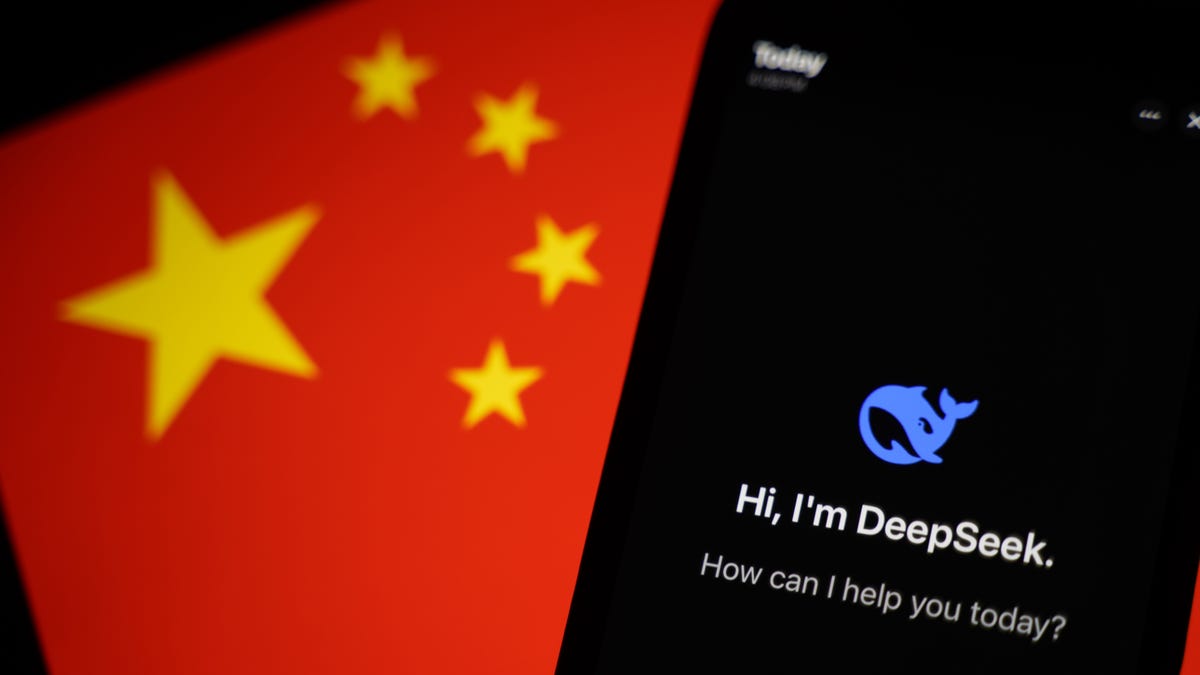Beyond DeepSeek: Exploring Eight Pioneering AI Chatbots from China
As artificial intelligence continues to evolve, the landscape in China is rich with innovation, particularly when it comes to AI chatbots. These digital assistants are not only transforming customer service but are also making significant impacts across various industries. In this article, we will explore eight pioneering AI chatbots from China, examining their unique features and the broader implications they have on technology and society.
The Emergence of AI Chatbots in China
In recent years, China has emerged as a global leader in artificial intelligence, with a particular emphasis on natural language processing and machine learning. The proliferation of AI chatbots reflects this trend, with applications ranging from customer support to healthcare and education. The versatility of these chatbots is astounding, with each designed to meet specific needs within different sectors.
1. Xiaoice
Developed by Microsoft China, Xiaoice is one of the most recognized chatbots in the country. Launched in 2014, it was designed to engage users in conversations that feel natural and human-like. Xiaoice employs deep learning techniques to understand context and sentiment, allowing it to tailor responses based on the emotional state of the user.
- Features: Xiaoice can generate poetry, compose music, and even offer emotional support, making it more than just a conversational bot.
- Impact: It has been used in various applications, including social media and customer service, showcasing the potential of AI in enhancing user experiences.
2. Turing Robot
Created by the Chinese company Turing Robot, this chatbot stands out for its versatility. Turing Robot is designed to serve multiple industries, including education, entertainment, and service sectors. It can adapt its responses based on the context, making it an invaluable tool for businesses.
- Features: It can be integrated into robots and smart devices, providing a seamless interaction experience.
- Impact: Turing Robot is revolutionizing the way businesses interact with their customers, enhancing engagement and satisfaction.
3. Baidu’s DuerOS
Baidu’s DuerOS is an AI system that powers various smart devices, including speakers and home appliances. This chatbot is designed to facilitate voice interactions, allowing users to control their devices through natural language commands.
- Features: DuerOS supports a wide range of functions, from playing music to controlling home security systems.
- Impact: Its integration into everyday devices is making smart homes a reality in China, showcasing the practical applications of AI chatbots.
4. Alibaba’s AliMe
AliMe, developed by Alibaba, serves as the backbone of customer service for various Alibaba platforms, including Taobao and Tmall. It employs AI to handle millions of customer inquiries efficiently.
- Features: It can answer questions, provide product recommendations, and facilitate transactions, all in real-time.
- Impact: By streamlining customer service, AliMe enhances user satisfaction and reduces operational costs for businesses.
5. Sogou’s Smart Chatbot
Sogou, a Chinese search engine company, has developed a smart chatbot that specializes in providing search-related assistance. This AI tool is integrated with Sogou’s search engine, allowing it to deliver relevant information quickly.
- Features: It can answer questions, suggest articles, and even assist in content creation.
- Impact: Sogou’s chatbot is helping users navigate the vast amount of information available online, making searches more efficient.
6. WeChat’s Intelligent Assistant
WeChat, the ubiquitous messaging platform in China, has its own intelligent assistant that enhances user experience by providing quick responses and suggestions. This AI chatbot can handle various tasks, from setting reminders to providing travel information.
- Features: The assistant learns from user interactions, improving its functionality over time.
- Impact: By integrating AI into its services, WeChat continues to maintain its position as a leading platform in the digital landscape.
7. Tencent’s Xiaowei
Xiaowei, developed by Tencent, is designed to offer personalized services across various applications, including gaming and social media. The chatbot uses machine learning algorithms to understand user preferences and provide tailored experiences.
- Features: It can engage users with customized content and recommendations based on their behavior.
- Impact: Xiaowei is enhancing user engagement and loyalty, showcasing the potential of AI in building stronger customer relationships.
8. iFlytek’s AI Assistant
iFlytek is known for its advancements in speech recognition and natural language processing. Their AI assistant is widely used in education, healthcare, and customer service, providing accurate voice recognition and responses.
- Features: The assistant can transcribe conversations, translate languages, and engage in interactive learning.
- Impact: Its application in education is particularly noteworthy, as it aids in language learning and provides personalized feedback.
Challenges and Ethical Considerations
While the advancements in AI chatbots from China are impressive, they also come with challenges. Issues such as data privacy, ethical use of AI, and the potential for job displacement are critical discussions that need to be addressed. It’s essential for developers and companies to implement responsible practices to ensure that AI technologies benefit society as a whole.
Conclusion
The landscape of AI chatbots in China is vast and continuously evolving. From enhancing customer service to revolutionizing education, these eight pioneering chatbots exemplify the potential of artificial intelligence to transform industries. As technology progresses, it will be vital to navigate the associated challenges responsibly, ensuring that the benefits of AI are accessible and equitable for all. The journey beyond DeepSeek has just begun, and the future holds immense possibilities for AI chatbots in China and beyond.
See more Future Tech Daily

